The Future of China
The vast majority of the material we present on this web site is about China's past not its present or future, but it is the consideration of China's future that holds everybody's attention. Will China be the dominant nation within a few decades? Will China develop military ambitions and build an overseas Empire? Here we muse upon these questions by looking at China's long history and traditions in an attempt to suggest some answers.
China as number one nation
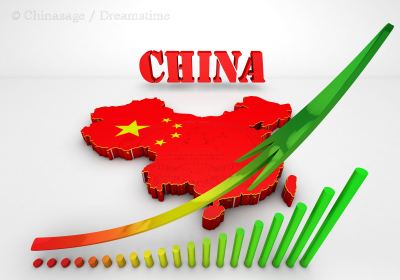
When Martin Jacques ➚ chose ‘When China rules the World’ for the title of his book he immediately received reactions of shock and incredulity. A country that had been a Third World country just fifty years ago should soon become the top dog? First to take issue with the title, because as far as history is concerned it is a question of ‘When China rules the World again’ because China has been the foremost nation on earth for much of its history. For two thousand years China has had the highest population, the most foreign trade, the largest cities, the most creative artistic and wisest philosophic traditions. It has only been since 1840, the start of China’s century of humiliation, that she lost her dominance and was relegated to the lower leagues. For it was only in 1850 that London overtook Beijing as the world's largest city. From China’s uniquely long perspective she has suffered no more that a temporary blip, and under new management will be back at the top of the table within thirty to fifty years.
Martin Jacques also makes much of the phrase ‘civilization state’ rather than ‘nation state’ with reference to China. This reflects China's unique history of culture cohesion. One and half billion people consider themselves part of the huge Chinese family in a much stronger sense than Americans or Europeans. All Han Chinese claim descent from the founding ancestor the Yellow Emperor. There is a strong feeling of 'Chineseness' that separates the people from other nationalities. It is far more racially homogeneous with an ancient written language understood by all. An example shows how deep this belief in separate identity goes, Tim Clissold recounts how he came across an old woman who believed that anybody born of Chinese descent would naturally speak in Chinese as if it were a genetic trait. These considerations make China a continental rather than regional power and put China in a different category to other ations.
Already by the year 1909, Sir Henry Arthur Blake, the British governor of Hong Kong foresaw much of what was going to happen in China.
“The awakening of China means her entrance into strong competition for her full share of the trade of the world. With her great commercial capacity and enormous productive power she will be able to a large extent to supply her own wants, and will certainly reach out to distant foreign markets. Exploration discloses the fact that in bygone ages Chinese influence has reached to the uttermost parts of the globe. It is to be found in the ornaments of the now extinct Baethucs of Newfoundland, and in the buried pottery of the Incas of Peru, while in Ireland a number of Chinese porcelain seals have been discovered at different times and in some cases at great depths, the period, judging from the characters engraved upon them, being about the ninth century A.D..”
“It may be that with the increase of commercial activity, wages will rise to such an extent as to bring the cost of production in China to the level of that of other nations; if not, then the future competition may produce results for the wage-earners of Liverpool, Birmingham, and Manchester evoking bitter regret that the policy of coaxing, worrying, bullying, and battering the Far Eastern giant into the path of commercial energy has been so successful. Given machinery, cheap labor, unsurpassed mineral deposits, and educated determination to use them, and China will prove a competitor before whom all but the strongest may quail. The only competition for which she will never enter is a competition in idleness. Every man works to the full extent of his capacity, and the virile vigor of the nation is intact. With the coming change in her educational system that will strike off the fetters of competitive memorizing and substitute rational reflection, China must be a potent factor in the affairs of the world. When that time comes let us hope that the relations between China and the British Empire will be the outcome of mutual confidence and goodwill.”
‘China’ by Sir Henry Arthur Blake pp. 120-126.
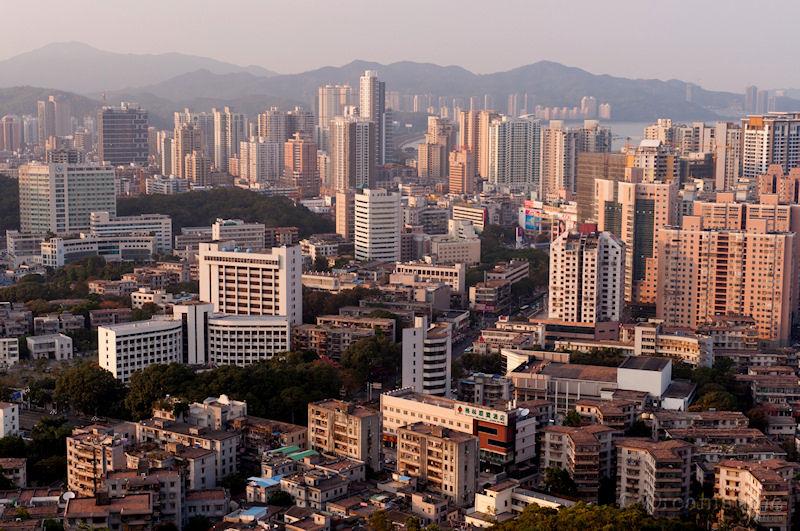
China's Industrialization
The amazingly rapid industrialization of China since the 1980s has astounded many, but it should be remembered that her neighbor Japan had a head start. Following the Japanese Meiji restoration in 1868 Japan soon proved that an Asian culture could quickly take to Western methods and industrialize rapidly. By 1898 Japan had defeated China in the Sino-Japan conflict, one of China's worst humiliations.
China at the time held the contrary position, stubbornly maintaining a distance from Western industrialized culture. The Imperial view was that the possession of mass produced 'things' would not enhance the lives of people, China had a stable society where everything necessary for a harmonious life were readily to hand. Britain's attempts to open up China to international markets in the Opium Wars were just seen as the aggressive actions of barbarian merchant adventurers, little more than the pirates that had harried China's coast for centuries. Another factor was that China had a huge and poverty stricken population that made labor prices too low to make industrial development economic - it was cheaper to do jobs manually than buy machinery or tools to do it. When Britain forced the doors wide open by the imposition of treaty ports throughout the country in the period 1860-1920, China still did not fully embrace the foreign economic system. It took the trauma of the Japanese occupation and Civil war with the nationalists for China to be convinced it must take on the western development model.
Many western commentators see the Mao era as a totally disastrous episode of madness; this is simply not the case. Mao re-united the country and started the first necessary steps towards development: building the roads, railways, power stations, reservoirs that form the necessary infrastructure. Without them there would have been no platform on which to develop industry. Perhaps more importantly Mao developed a national culture of possibility, changing the mindset from gloom and oppression to optimism. Without the enthusiasm to develop China as a modern nation nothing much would have happened. The lessons learned in the Republican period 1912-1937 were taken to heart. For even though foreign investment had poured in and there was rapid industrialization in Manchuria and ports along the coastline, the will to make it all succeed was lacking, there was no national aspiration to make the 'foreign' system work.
Since 1980 the conversion to a modern industrialized nation has been meteoric, far more rapid than the industrialization of Europe or America. The transformation had been stimulated by the rise of the Asian Tigers ➚ (South Korea, Taiwan, Hong Kong and Singapore) in the period 1960-90. Foreign investment has poured in to China fueling development with promises of subsidies and reduced tariffs. China's large cities are transformed every few years with street maps struggling to keep up with developments. Parallels can be drawn with the development of America, in both cases a vast continental area was ripe for industrialization. In both cases free movement of labor allowed an over supply of cheap workers to be available to build up new industries, and a huge internal market for manufactured goods was soon developed. There is a lot of catching up do be done, the Americans consume fourteen time the amount of energy of the Chinese. America has one car for every two citizens, in China it is only one per nine people.
The period 1980-97 proved very difficult. Many industries were ripe for investment and expansion but they were tied down with poor industrial relations and bureaucratic interference. Joint ventures with foreign venture capitalists proved disastrous. Many factories still had a tied workforce, lay-offs would almost inevitably lead to destitution, as there was no free movement of labor. Since the opening of stock markets in Shanghai and Beijing the investment has been mainly internal and so there has been less friction over 'foreign' management and ownership. China's development is following a ripple effect, the first provinces to be industrialized such as Guangdong have now moved towards service industries, while under-developed provinces further inland are providing the cheap labor for new factories there.
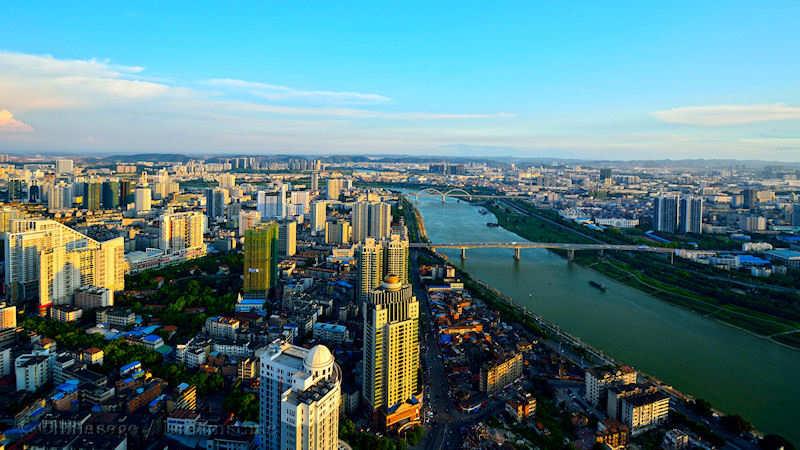
China's Foreign policy
How will China use her newly found dominance in the region? Will China be content to stay within its own borders? Will she follow the trajectory of other empires and spread her dominion far and wide? Most commentators think that China has no appetite for foreign adventures. However there are neighboring countries that have cause for concern. Taiwan was for centuries a province of China and its forced separation remains a festering sore, see our ‘One China Policy’ page. When China was strongest her dominion stretched out to neighboring Myanmar, Korea, Vietnam and deep into Central Asia. It is likely that a dominant, wealthy China will strongly influence policy in the region but there are no suggestions of wishing to formally widen its borders. China is building up trading blocks of nations in which she will be the dominant force in cultural and financial terms. By sheer size of economy China will dwarf its neighbors in a process of unification rather than conquest. The Chinese currency (renminbi) and language (mandarin) are likely to become the regional standards for any interested in development in East Asia.
It is Japan that stands out as the country most resisting Chinese empowerment. China's other neighbors have turned to China while Japan continues to look to the US for support and leadership. China's frosty relationship with Japan is much worse than that with the US. If the US should withdraw its many military bases there, forcing Japan to rearm, tensions are only likely to worsen.
In terms of China's internal stability, western pressure for the foundation of a separate nation of Tibet are unlikely to succeed. Tibetan cultural influence spreads not only over the modern province of Tibet but into Qinghai, Xinjiang, Gansu and western Sichuan and so accounts for about a third of China's land area. There is no clear border for a new nation of Tibet to be formed. The 'Free Tibet' movement is based on a romantic re-writing of history; the rule of the Buddhist Lamas was both brutal and corrupt, it was not some Shangrila smashed by Chinese aggression. The huge investment by Beijing into this far away province continues to enhance the standard of living of ordinary Tibetans. However, China continues to maintain a 'parental' attitude to Tibetans, at heart they are not seen as equals.
For centuries past and certainly today, a much more likely province to challenge Chinese rule is Xinjiang. There are two main reasons why the huge, remote province is more of a problem. Firstly, unlike Tibet, Xinjiang is rich in natural resources and so it could form a rich independent state. Secondly Xinjiang has nations on its borders with close cultural affinity. It used to be called ‘East Turkestan’ reflecting its position as part of Muslim Central Asia. The native peoples are Caucasian and have never mixed with the Asian people of China.
Turning away from Asia, will China form an imperial system like the Europeans or Americans? The lessons of Empire show that a dominant power will create an empire even if that is not its intention. The pattern of control follows a standard trajectory. A group of entrepreneurs set up business in a foreign country. The colony prospers, creating friction with the local inhabitants. The mother country feels it has to intervene to protect its far away citizens. Then a small tactical military expedition turns into a permanent presence to defend its citizens and economic assets. A backlash by the local inhabitants in acts of terrorism and sabotage escalate the conflict so that the foreign power is obliged to extend its campaign and reach far into the country's interior. The military campaign although successful becomes permanent rather than temporary to handle potential, future emergencies. This pattern of colonialism shows how insidious it can be. A nation does not start with a motive of 'carving up' new territory for itself, at each step it believes it is doing the right thing: protecting its citizens and maintaining the wider peace. A militarily strong nation is seen as justified in intervening in these circumstances. Will China follow this pattern as more of its nationals settle in foreign countries and set up business?
Many believe that China will instead reinvent the 'Tributary system ➚' in which neighboring nations in return for submission to Chinese policy will be given access to Chinese markets. This is is contrast to the Westphalian system ➚ where nations are considered equal and independent. It is the sheer scale of China that makes it impossible to consider other nations to be its equal. Whether she likes it or not, China is the major power in eastern Asia. It is the dominant force in the Shanghai Cooperation Organization ➚ which is a little like NATO for East Asia, the member states vow to respect and support each other’s independence. Following the model of the US, international organizations are likely to be set up in China so she can influence them just as the US heavily influences the UN. Another development will come from the power of the Chinese currency, the renminbi. It became a reserve currency in November 2015 and will soon become the main ‘common’ currency of East Asia just as the Mexican dollar, British pound and US Dollar used to be. Deference by neighbors as new ‘tributary’ states can be clearly seen when China reacts to the maltreatment of its citizens in Malaysia and other nations.
One unique feature of China is that it has never had allies that are equal. She has allies such as North Korea and Pakistan but not allies in the same sense as the NATO nations. There is a deep-seated concept of China as not in the same league as other nations so an equal alliance is not something that makes sense.
Recent foreign policy is regarded as timid, stepping back from joining in conflicts and remaining neutral where possible. There is mounting pressure for China to become more vocal and be willing to act as the world's policeman when necessary. In Africa the policy has been to provide loans and aid without the strings that Western nations and institutions (World Bank; IMF) attach to the deals. This makes the loans much more attractive to African states. However involvement in Africa (see this in depth report ➚) has not been wholly welcomed, the new cheap goods have undercut local industries and China continues to employ its own nationals rather than local Africans. For thousands of years China has known that strategy must project both hard and soft power (王道 Wáng dào and 霸道 Bà dào) using soft power to keep allies loyal and hard power to deal with barbarians and revolutionaries.

Armed Services
China has the largest armed service in the world by far. China had 2,035,000 military personnel in 2025 while the U.S. had 1,300,000. Expenditure is however less and because of China's huge population the military expenditure per head is at 208$ per capita which is around the world average [2019]. As a nuclear power it is ranked 3rd with 600 nuclear missiles behind Russia and the US.
The trend in development of the services is to move to higher technology systems and broader capability. For instance she deployed her first aircraft carrier the Liaoning ➚ in 2012 (a refurbished Russian vessel) and another carrier is under construction. The building of a modern navy is a new and significant development for China, it has always been a land-based civilization. However the U.S. still dominates militarily, and China's only answer would be in asymmetric warfare - for example using anti-satellite missiles. The United States use of military power has been significant, with 800 military bases overseas it projects control without the need for a formal empire of nations pledging allegiance.
Chinese Government
When considering the government of China once again it is the long hand of history that has to be taken into account. Readers may think that surely the coming of Mao Zedong 1949 in totally smashed the ancient Imperial administrative system of government; however some attributes resolutely clung on. This is not hard to fathom, although the people at the top changed, the myriad administrators below remained and just adapted to the new regime. For centuries the passport to wealth and influence was as an educated government official – not as a merchant. Ten years ago if you mentioned Confucius with reference to government you might have got a questioning smile. Nowadays he is back there as the revered figure whose views on wise and benign government are constantly uttered. In retrospect the Mao era was not a break in Confucian guiding philosophy the essence remained in spite of the campaign against the ‘four olds’. For Mao's role was very much Imperial in tone, imposing wide scale reforms and seeking the advice of only a few trusted colleagues. Government continues to be paternalistic, with devotion to the leader just as prevalent as it had been to the dynastic Emperors. The President has remained a paternal figure both responsible for the care of his people and in return loyally obeyed by them.
However officials remain relatively poorly paid and so the temptation of making more money illegally is rife. Deals over changes of land ownership are a particularly lucrative source of extra income.
Democracy in China
The common view in the West is that democracy is at the pinnacle of the evolution forms of government and given time and suitable conditions all nations will gradually aspire to this aim. This seems unlikely as a general rule and inappropriate for China in particular. Historically speaking democracy has come late if at all to developed nations. Universal suffrage came to the UK in 1928 and the US in 1965 (when Afro-Caribbeans in the south were given full rights); in both cases long after industrialization and the peak of their power. China saw how Hong Kong and Shanghai prospered in the colonial era without democracy or human rights. India is the only country that holds free and fair elections since independence and remains a developing nation. Democracy is not a pre-condition for industrial development. For democracy to work there has to be at least two political parties with different views on the country's general direction. China does not have such contending organizations, if people want a change of policy they do that through the Communist party's machinery and not by setting up opposition groups. Joining such a group would be seen as deeply disloyal to the nation in China, in many ways the party is the country and any rejection of the party is seen as seditious and unpatriotic. For these reasons the absence of democracy should not be seen as backwardness, just another equally legitimate system of government. Gū Hóngmíng辜鸿铭 an official at the start of the Republican period wrote about democracy in these terms: “This religion of the worship of the mob imported from Great Britain and America into China, which has brought on this revolution and the present nightmare of a Republic in China. Democracy was now threatening to destroy the most valuable asset of the Civilization of the world today - the real Chinese spirit. Democracy will destroy not only the civilization of Europe but all civilization in the world”.
While democracies choose their President through a universal ballot, China has a politburo system. The senior leadership, with advice from their predecessors, choose their candidate who has proved himself at provincial and national levels. This would seem a more prudent form of selection than in a democracy where it is the size of the advertising budget measured in hundreds of millions of dollars that determines the outcome. An analogy is often made about the ideal restaurant; is it appropriate to democratically elect the chef? Surely it is better to judge on the dishes the chef cooks up. In a similar way it is the policy rather than the personnel that need to be carefully chosen, too much focus on individuals takes the emphasis away from the general direction of travel.
There is limited democracy at a local level and this has shown signs of growth. Some cities elect their mayors and some hold open policy forums where anyone can state their view. However full blown democracy has also been tried. Pingchang County ➚, Sichuan is held up as the example of such an experiment. Some residents are recorded as applauding the benefits but it has not been taken up elsewhere, in general it is just used to demonstrate that China is willing to experiment with other systems.
Centralized power often has the effect of stymieing development. This is because officials can not just impose plans, they have to be enthusiastically embraced by all, in the early days of the Peoples Republic a series of national five year plans set out key goals. While these plans were effective for building national infrastructure projects (roads, canals, water and electricity supply) they have never been effective in fueling industrial development at a local level. China is just too big and the system of control too distant for it to be able to micromanage nascent industries. The Deng Xiaoping reforms of the 1980s ushered in a new approach of relaxing central control. The Special Economic Zones ➚ that were created were spectacularly successful. Freed from planning control entrepreneurs just did whatever they liked. The leaders became rapidly rich and powerful forming a group of ‘red barons ➚’ that exercised control over the new fiefdoms. The central government allowed the situation to continue so long as development was rapid and the leaders broadly subservient. This uneasy balance of a strong, strict central government and a relaxed local administration continues to create tensions. The government at times steps in to keep corruption and mismanagement under control. Noted recent examples of this dichotomy are Zhou Yongkang ➚; Bo Xilai ➚ at Chongqing and Lai Changxing ➚ at Ningbo.
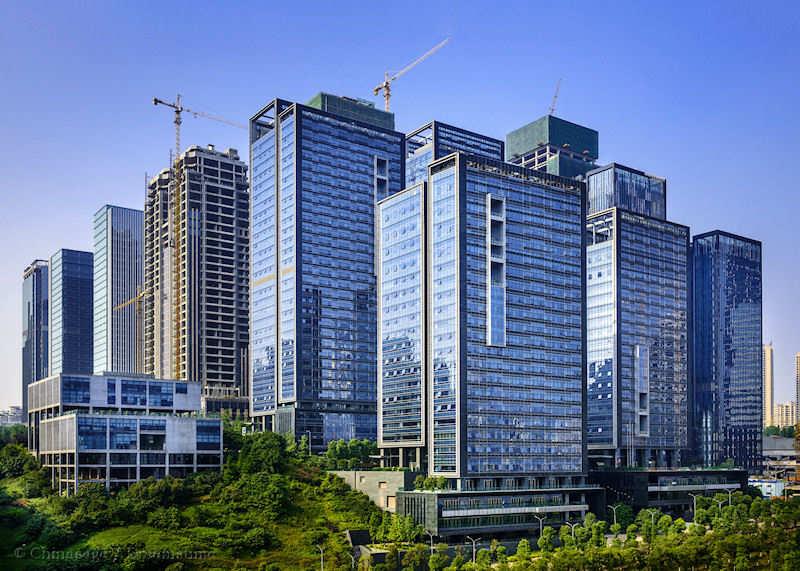
There is a long historical tradition of graft in China ➚ and this is why it is so hard to remove, many do not see that there is much wrong in creaming off a proportion of deals. Briefly during Mao's tenure monetary corruption was under control, and it was partly his fears of growing corruption that he used to justify the unleashing of the Cultural Revolution. It is claimed that corrupt payments may constitute a significant proportion of China's GDP, at one time it was placed as the fourth most corrupt country in the world. Despite frequent anti-corruption purges it is difficult to see how this endemic problem can be easily solved, it is just the normal way to do business in China. To succeed the state has to wage continual war on corruption, in a democracy it is ordinary people who can hold strong, vested interests to account.
The centralized control allows for careful planning of reform. With such a vast country it is possible to use different approaches in different regions and see which one works out best. To help a new scheme to gain momentum the initiative is usually couched as just a small tweak to the system. The model of slow and ponderous development is neatly encapsulated in Deng Xiaoping's use of the phrase ‘groping for stones to cross the river’, this was a distinct break from Mao's doctrinaire approach of promoting a clear, single path to the future.
When democracy and China are mentioned it is not long before the events of Tiananmen Square 1989 are put on the table as both showing the desire for democracy among the ordinary Chinese people and ruthless suppression of such an aspiration by the Communist government. The events are still hotly debated and widely misrepresented. A substantial section of the demonstrators were not campaigning for democracy, their complaint was that the market reforms were occurring too fast and that they widened the gap between rich and poor. The Tiananmen Square protests came after the screening of the ground-breaking 'River Elergy ➚' TV series in 1988 that ridiculed romantic illusions about Chinese traditions. Like Lu Xun's acerbic view on tradition it opened up debate about a possible New China not slavishly rooted in the past.
When an Imperial dynasty lost their Mandate of Heaven the people were justified in rebelling against it. The same could be true of the Communist Party, if the party should fail to deliver on prosperity and development it is likely that mass revolts will take place, however as there is no other party to turn to in China it will be some party faction that will emerge and take over leadership. Chinese people look to the lesson of Russia, as the communist USSR was the second world super power, when limited democracy took hold not only did the 'empire' split into squabbling nations but the economy took a severe nose dive. China will not risk such a Gorbachev ➚ style reform. When the USSR broke down in 1989, it did so because it had not delivered the promised prosperity. For all its faults no-one can put out the notion that the Chinese Communist government has failed to deliver on growth and prosperity and so the justification for revolt is just not there at present. Democracy is seen as a dangerous experiment that may halt development in China heralding a new Cultural Revolution when rival nascent parties fight for dominance halting progress for no good reason. Recent polls show a strong majority are still content with the Communist Party, there is little appetite for change. There has been a long standing aversion to dramatic change as it might bring in a ruinous period of chaos.
China's Soft Power
With increasing wealth in recent years China's spending power has increased China's soft power in many areas including sport. Formula 1 now has an annual race at Shanghai. Snooker ➚, once the preserve of only British players has been revolutionized by interest from Chinese players, supporters and gamblers. In Classical music it is artists from China that now dominate the list of top world players on the piano and violin. Following Chinese tradition, musical accomplishment has become the study for many children. The importance of the Chinese language too must not be underestimated. Mandarin is spoken by a billion people as first or second language, double the number of English speakers. It is likely to become the common language for the whole of Eastern Asia.
Chinese food is a less obvious part of China's soft power, it is found and respected worldwide, and the Chinese diaspora have mainly stuck to it rather than turning to the cuisine of the host nation. Another important soft power for any nation is its film industry. China has become more and more influential as a film producer, the vast cinema audiences in China are forcing Westerners to make films that will attract Chinese people to watch them (by including a lead Asian actor for instance).
Central to Chinese culture is a feeling of belonging to a clan. Family ties are still very strong, stronger than in other nations. When China has the power to reach out and protect its citizens it will be hard to resist such calls in future.
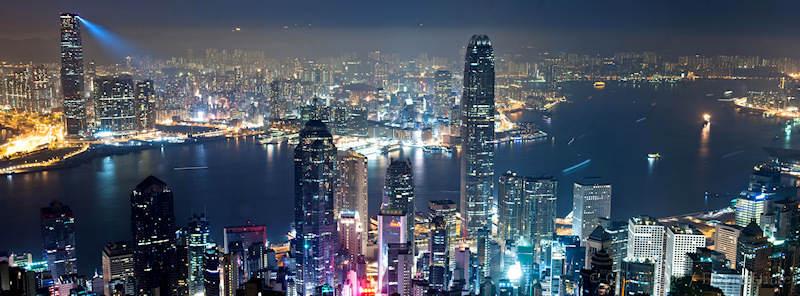
Human rights in China
No discussion of present day China would be complete without mentioning human rights. The Chinese President has to fend off such questions whenever he meets a western leader. The lack of human rights is seen as the major flaw that must be corrected before China can join the ranks of ‘developed’ nations. It remains a contentious issue, the Chinese perspective is that rights are just the mirror image of responsibilities. The right to health care reflects the responsibility of the family and state to keep people healthy. The right to free speech is mirrored by the responsibility of showing tolerance and loyalty. In any case countries without a written constitution, such as the UK, do not have formal human rights. Chinese people will argue that you only need human rights under an oppressive government, if you have a benevolent administration that is governing wisely you do not need to have rights written into law as the state always acts in your best interests. It is this trust in a paternalistic system that makes the push for human rights legislation a less relevant issue for China.
Westerners are probably aware of the control the Chinese state exerts over the media. In particular China employs over 100,000 people to police the Internet. Blog posts are deleted, search terms and web sites are blocked. Although it is possible to circumvent the ‘Great Firewall of China ➚’ it is only people who already hold anti-government views that tend to do so.
There is continued concern that China lacks real religious freedom. This is generally misplaced, for there is and always has been a very tolerant attitude to religion in China. Unlike Western states there has been only very rarely a single state religion, China has historically tolerated three main religions side-by-side: Daoism; Confucianism and Buddhism. China has for a long time succeeded in separate state from church. However after a history of interference by Western missionaries in Chinese affairs since 1860 the state has stipulated that it does not permit its citizens to be subject to a foreign spiritual leader, all religious institutions must be led and run from China.
For the world in general, not just in China, it is a stable society with a fairly policed rule of law that is more valued than democracy or human rights. It is confidence in a firm but fair legal system that allows people to live in peace.
Possible future for China
There are many possible futures for China. As we have seen since the economic crash 2007 China's role has been crucial. Should China's growth collapse the world economy will falter – this is just a result of its sheer size.
1. Continuing growth
Most experts are agreed that China will continue to grow rapidly, but not at the previous 10% level, more like 6%. Such continuous growth is still sustainable because of the untapped potential of inland provinces and the 40% of population still working on the land with low incomes. When this huge potential workforce, measured in hundreds of millions, have been moved to urban employment China will have far outstripped the US with only India as a potential rival.
2. Stagnation
Few think that China will halt growth and just stagnate. However as this happened in Japan it is not beyond the realms of possibility. The continual desire for economic growth is very ingrained but it is not entirely logical. When people and resources have all been incorporated into the economy there is no clear avenue for fresh growth. From the environmental movement comes the view that economic growth is not essential or sustainable in the long term. Historically China has had centuries when little change and very modest economic growth. Growth has never been an aim in itself, the objective has been for greater general harmony. Once most Chinese people are removed from poverty the main motivation for rapid growth will have been removed. However in China there has been a continued appetite to embrace all that is new and despise all that is old in technology, style, architecture and this general aspiration shows no sign of abating.
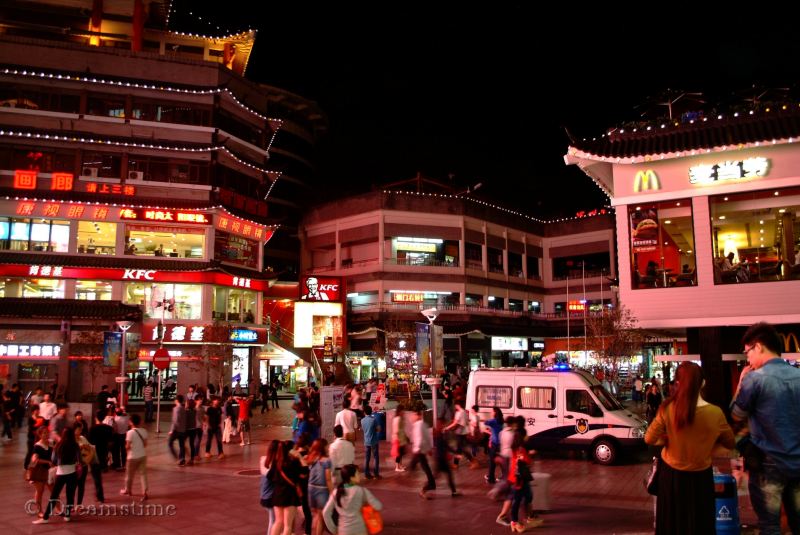
3. Globalization
Another trajectory often touted is that China will simply join the ranks of ‘westernized’ nations. If you visit China today you will see international brands in all the major cities and at a glance you might think you were not in China at all. Will all the developed world become homogenous? When you scratch the surface the globalization is seen as just skin deep as there is a strong loyalty to Chinese culture and traditions – greater than elsewhere. The interdependence of nations has been brought sharply into relief during the 2008 financial crisis, it was the continuance of Chinese growth that saved the whole world economy, U.S. dependence on China for investment has been heavily underlined. International companies will feel the need to have significant presence if not their headquarters in China. It will be the leading power in East Asia following its own agenda and not joining the club of Western nations.
4. Soft Power
In the interconnected world of today a nation can further its aims much more effectively with soft rather than hard power. Britain is considered by many to be the nation with the most soft power, partly because of the relentless increase in the speaking of English. London is widely regarded as the most cosmopolitan city ➚ in the world making it the natural meeting place among peoples and the home for world organizations. China is developing its own soft power with such institutions as the worldwide network of Confucius Institutes ➚.
China is building up soft power whenever it can, hiding its true strength. It has launched a world service television channel CCTV 9 ➚. China's universities are rapidly becoming world class and just as importantly many Chinese students study abroad, acting as unofficial ambassadors. China knows the importance of recognizable brands and is supporting its industries in promoting Chinese companies as world not just domestic brand names (e.g. Huawei ➚ (telecoms); Temu ➚; Haier ➚; Hisense ➚; Alibaba ➚ and Xiaomi ➚). China quite rightly set great store on the Beijing Olympics ➚ in 2008, the lavish expenditure on new venues and the success of Chinese competitors added greatly to China's prestige as a world class sporting nation. As a key member of Shanghai Cooperation Organization ➚, China has strong ties with all major states in the region.
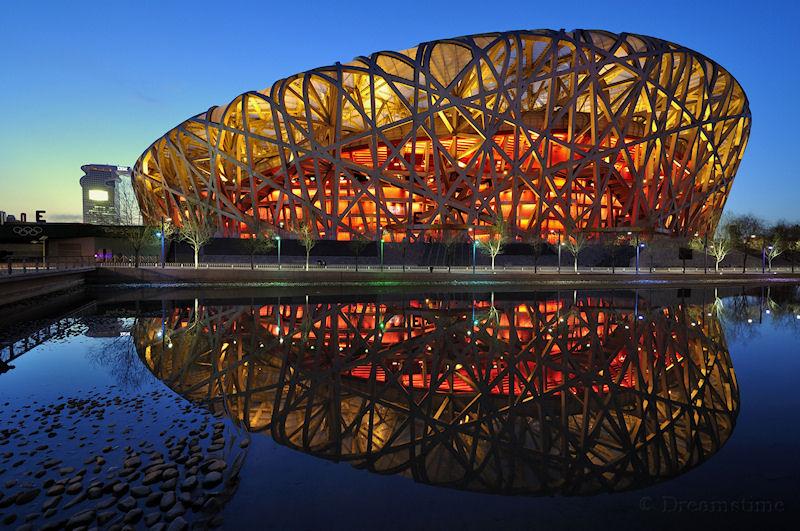
5. Chinese Overseas Empire
Many people are watching with interest the actions of China in Africa. Africa currently offers the best opportunities for investment. China needs Africa to plug the shortfall in its demand for food and mineral resources; so the Chinese government is using its huge monetary reserves to invest heavily in Africa. Will China then form an Overseas empire ➚ with many African states if not officially ruled by China then at least financially dependent on China's decisions? One of China's hidden secrets is that many do not value people with dark skins, the general hierarchy of races is Chinese, White Caucasians, Southern Asians, South Americans then Africans. There is a deep seated racial element strengthened by the age-old yearning for as light a skin as possible. For example when Condoleezza Rice ➚ was American Secretary of State she was the target of considerable racist abuse in the Chinese social media. This seems to have grown out of the fact that skin color was an obvious indicator of social class - anyone who worked outdoors had a giveaway tan. Those spending a life of leisure would have the palest skins.
6. Environmental Issues
Western concerns about care for the environment in China are widespread. With very rapid industrialization it is China's environment that inevitably takes a hammering. It is true that the government has put in strong policies to mitigate the effects but many observers see the implementation patchy and half-hearted. At the local level the aspiration to get rich trumps any concern for the environment. There are many stories of bribes to local officials so that they turn a blind eye to the rules. There is a strong cultural tradition that treasures the untamed delights of nature, but up until recently the Western mindset of empathy for animals has been absent. Nature is still seen as something to be tamed and exploited and other creatures seen as of no value compared to humans. There are signs that the utilitarian attitudes are changing to one of stewardship but this will take many years to come to fruition. In the meantime the march of rapid growth will do huge damage to China's natural environment.
However it is true that only rich countries have the luxury of nurturing nature, developing countries can not do this, the pressures for human survival take priority. In particular the rapid construction of power stations in China has caused concern; as they burn cheap 'dirty' brown coal at one time it is said to have led to 30% of China's rainfall being classified as 'acid' and polluting 70% of Chinese lakes. Calls for China to join the various Climate Change initiatives have to take account of the fact that China is still building up electricity supplies for its people compared to developed nations.
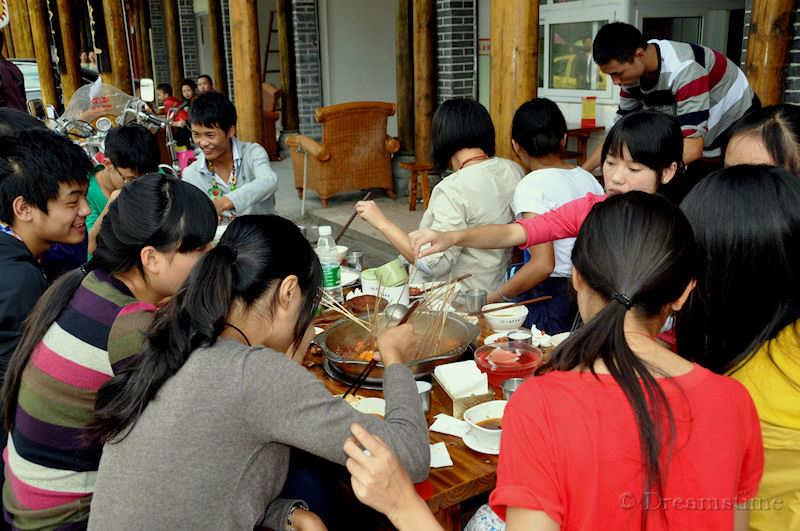
China's future in summary
Economics and politics can only say so much. Reducing a nation to statistics is no yardstick for the future; they do not and can not measure a people's general aspiration, it is the mood of the nation rather than figures that is of paramount importance. China remains supremely confident and positive about the future in general and of China's future in particular. In the end, it is this shared consensus of a bright destiny that outweighs other concerns. The description of a nation as ‘advanced, developed and civilized’ is no longer the property of just the West. The renminbi is destined to become the regional currency and mandarin the regional language .
Although it is commendable to consider all citizens of the world the same, equality of rights does not make all people the same. China has a deep sense of distinct cultural identity, with a strong loyalty to the extended Chinese family. It has an immense cultural continuity and cohesion unlike anywhere else. Unlike other diaspora, Chinese settlers have kept their cultural loyalties even after many generations. It is likely that the togetherness will lead to a sense of cultural superiority as happened with European empire builders.
Similarly industrial development does not put a nation on a necessarily convergent track with Western industrialization, the world has many possible futures not just one inevitable target. China still sees itself as central to the world both culturally and geographically at the Temple of Heaven in Beijing. The last dozen years have shown an emancipation away from the western vision of the future. China has the strength and confidence to define its own way in the world just as she has always done.